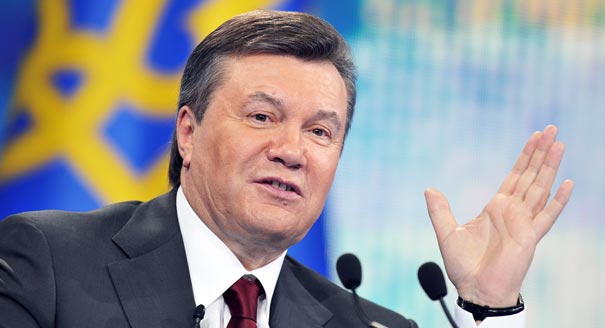Despite obvious similarities with Russia, following the collapse of the USSR Ukraine looked to have a better prospect for democratization. Or so it seemed as Ukraine, unlike Russia, had several power transfers through elections, and especially when the Orange revolution generated, if briefly, expectations for responsible government. The divergence between the eastern and western parts of Ukraine, with their different histories and cultures, called for more sophisticated domestic politics forcing post-Communist Ukrainian presidents to play a balancing act in order to reconcile the mostly Europe-leaning West with the predominantly Russia-leaning East. That Ukraine had two reference points—Russia and Europe—appeared to be conducive to a more balanced approach to foreign policy as well.
Today all such illusions have long been shattered. In Ukraine, as in Russia, the Soviet legacy (lingering in the eastern part of Ukraine) proved to be more tenacious than expected, and that of its western part may be non-Soviet or even anti-Soviet, but it is more likely to foster parochialism and nationalism than push Ukraine toward liberal democracy or European standards of governance. The cultural and historical differences between various parts of Ukraine proved to be a grave hurdle to nation building, while sophisticated and balanced politics never emerged.
The low levels of democracy and rule of law in Viktor Yanukovych’s Ukraine are not dissimilar from Russia’s. Today’s Ukraine is the scene of poor-quality governance, corruption, questionable electoral practices, and inauspicious business environment, and it is not showing signs of improvement. In this, too, it is not different from Russia; a very significant difference, however, lies in the fact that Ukraine does not have Russia’s resource wealth and is, therefore, much poorer than its large neighbor.
Over the past years, the European Union’s attempts to create incentives for improvement in Ukraine, whether political or economic, have mostly failed. Whoever is to blame for that and whether there had even been a chance for better development in Ukraine or such attempts were doomed anyway, today the opportunity is even more limited. Russia itself is increasingly losing interest in closer ties with Europe and shifting toward an anti-western, even isolationist course. Russia is anxious to assert itself as a regional leader in post-Soviet space, and in this endeavor Ukraine is the key prize. A European shift for Ukraine is therefore seen by the Kremlin as unacceptable. Russia seeks to pull Ukraine into the Customs Union and then to a broader Eurasian Union, an integration project for ex-USSR nations Putin strongly endorsed in the fall of 2011. Moscow lures Ukraine with good economic opportunities, including gas discounts, but at the same time makes it clear that if Ukraine opts for a European choice, it may regret it. (The ban on Ukrainian candy imports to Russia as well as the blockage by the Russian customs of product deliveries from Ukraine can be seen as reminders of just how Russia can give Ukraine a hard time).
Europe, in the meantime, is preoccupied with its own hard economic problems and is undoubtedly weaker today than it was, for instance, at the time of the Orange revolution. But the EU arguably realizes that “losing” Ukraine will weaken its positions even further—emboldened by its “gain” of Ukraine Russia is likely to begin looking closer at other weaker nations in the post-Soviet space. This realization appears to heighten the EU interest in Ukraine. At the Eastern Partnership summit scheduled for November 2013 in Vilnius, the European Union will have to make an important political decision: does Ukraine meet the conditions for signature of an EU-Ukraine Association Agreement, and if it doesn’t (which is most likely the case) just how much lenience the EU is prepared to show? President Yanukovych is not making this decision easier for the EU: he does not change his practices, because a less corrupt and more transparent governance as well as more robust rule of law would obviously weaken his authoritarian power.
Russia is not setting any conditions as applies to standards of governance or rule of law, but its integration proposals are barely acceptable to Yanukovych either. Such an integration would mean that Ukraine would no longer control its own economy, and first and foremost, would lose its energy independence. This is what happened to Belarus, and Yanukovych would certainly want his country to avoid such a fate. And his desire is very strongly backed by the Ukrainian business tycoons who, in the case of a “Russian choice,” would be unable to withstand the pressure of the powerful Russian business interests.
Yanukovych can be expected to do his best to play with both giants, while not yielding too much to either, while Russia will proceed with its combination of pressure, threats, and promises; and Europe will struggle between losing Ukraine to Russia and compromising on its principles. In the near future Russia is more likely to win the Ukrainian prize. But if Yanukovych displays political art and holds on, Europe may have a better chance in the longer run—if it pulls its act together and comes up with political vision and savvy.
